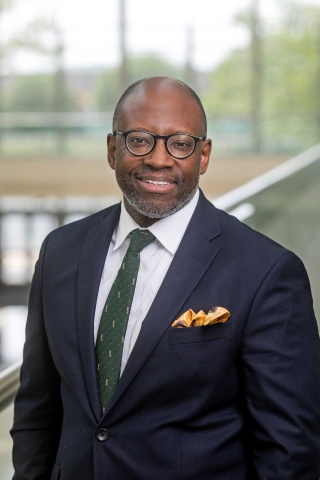Dr. Martin Luther King Jr. dreamed of a day when blacks would not be judged by the color of their skin. Yet many Americans remain incapable of anything other than racial reasoning. Income disparities, housing disparities, healthcare disparities, and education disparities are defined by race, as though racial distinctions define some sort of single-celled organism, not complex human beings. What is needed is less attention to white/black conflict and more focus on restoring the freedom and dignity of all people, just as King desired.
Many black commentators protest that Americans laud everything “white” as normal, yet many blacks still use whites as the measuring stick for black progress. Who cares how well blacks are living compared to whites? Does it really matter? In fact, the greatest impediment to appropriating King's dream is our unwillingness to move beyond a white social barometer.
Truth be told, achieving the same as whites still leaves blacks lagging behind Asian Americans and Hispanics in many areas. Why should the achievement status of whites be the norm for blacks, when whites, as a group, are not producing the nation's best?
For example, Asian Americans (who have now fallen victim to being considered homogenous) far exceed whites on multiple achievement fronts. As the fastest growing ethnic group in the nation, 60 percent of Asian Americans earn $50,000 or more annually compared to whites at 54 percent and blacks at 32 percent, according to the U.S. Census Bureau. Moreover, the median Asian American family income is nearly $6,000 more than whites and more than $27,000 more than blacks.
In educational achievement, 2005 Census Bureau data reveal that 49.4 percent of Asian Americans have at least a college degree, compared to whites at 28.2 percent and blacks at 17.6 percent. Consequently, Asians have the lowest unemployment rates of all people groups in America, including whites, at 3.8 percent. The College Board reports that in 2005 Asian American students not only had the highest mean SAT scores but also that Asian American seniors that year had the highest mean GPAs among all students nationally. What's even more telling was the discovery that in 2005 blacks trailed Native Americans, Asian Americans, Mexican Americans, and Puerto Ricans in mean SAT scores and GPAs.
If blacks trail all people of color in education achievement, why focus on the black/white achievement gap? A 2001 Rand Corporation study rightly concludes, that “although white Americans are often used as a yardstick for measuring progress of other ethnic populations, in many respects they are far from an ideal population.” Better solutions questions involve why black students trail all broad ethnic groups in SAT performance.
Taking an international perspective, too, helps us move beyond black/white conflict. In the international marketplace, what matters most is not how blacks compare to whites but how Americans, regardless of race, compare to the rest of the world. The National Center for Education Statistics in 2003 reported that American eighth graders have lower science performance than 8th graders from Australia, China, Estonia, Hungary, Japan, Korea, Scotland, The Netherlands, and more. Additionally, American 8th graders in science score significantly lower than their peers from Australia, Belgium, China, Italy, Japan, Korea, Latvia, Malaysia, the Netherlands, Russia, Singapore, and the Slovak Republic.
International comparisons give us valuable information to enrich our common goals for all Americans. Skin color assessments, on the contrary, divide and distract us from our common mission to provide all Americans with equal opportunities to freely prosper.
In his 1967 speech “Where Do We Go From Here,” King again dreams of an America where no one shouts “white power” or “black power” but “everybody talks about God's power and human power.” Only by moving beyond racial reasoning will King's dream to make America a great nation come to fruition by inviting blacks into their international destiny as people of dignity and liberty.











